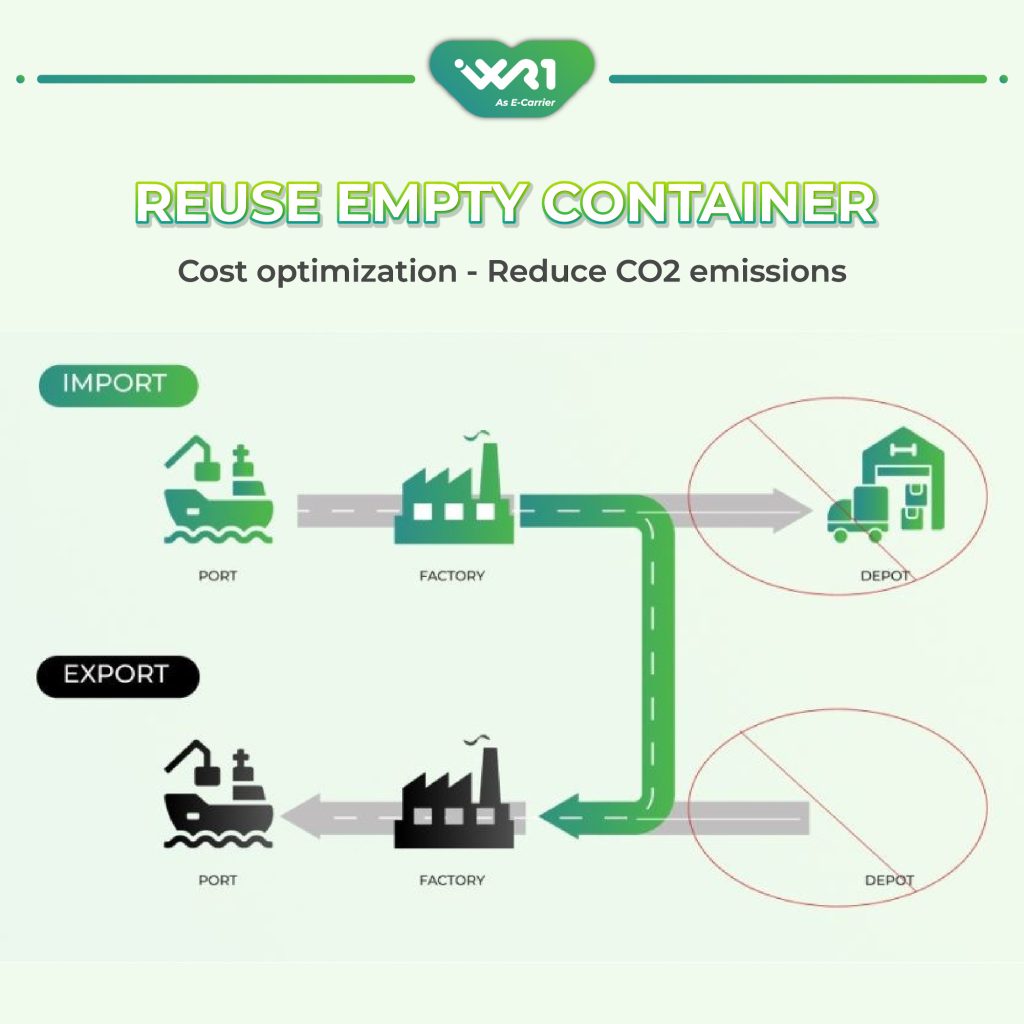At the COP26 conference (2021), along with 137 other countries, Vietnam committed to joining Net Zero, comprising 5 main objectives, including a commitment to reduce methane emissions by at least 30% by 2030. To fulfill this commitment, on August 5, 2022, the Prime Minister approved the Action Plan for reducing methane emissions in activities such as agriculture, livestock farming, solid waste management, wastewater treatment, oil and gas exploitation, coal mining, and fossil fuel consumption.
In order to stay ahead of the trend and effectively implement the commitment to reducing emissions with the goal of sustainable development, WR1 has also implemented solutions in its transportation activities.
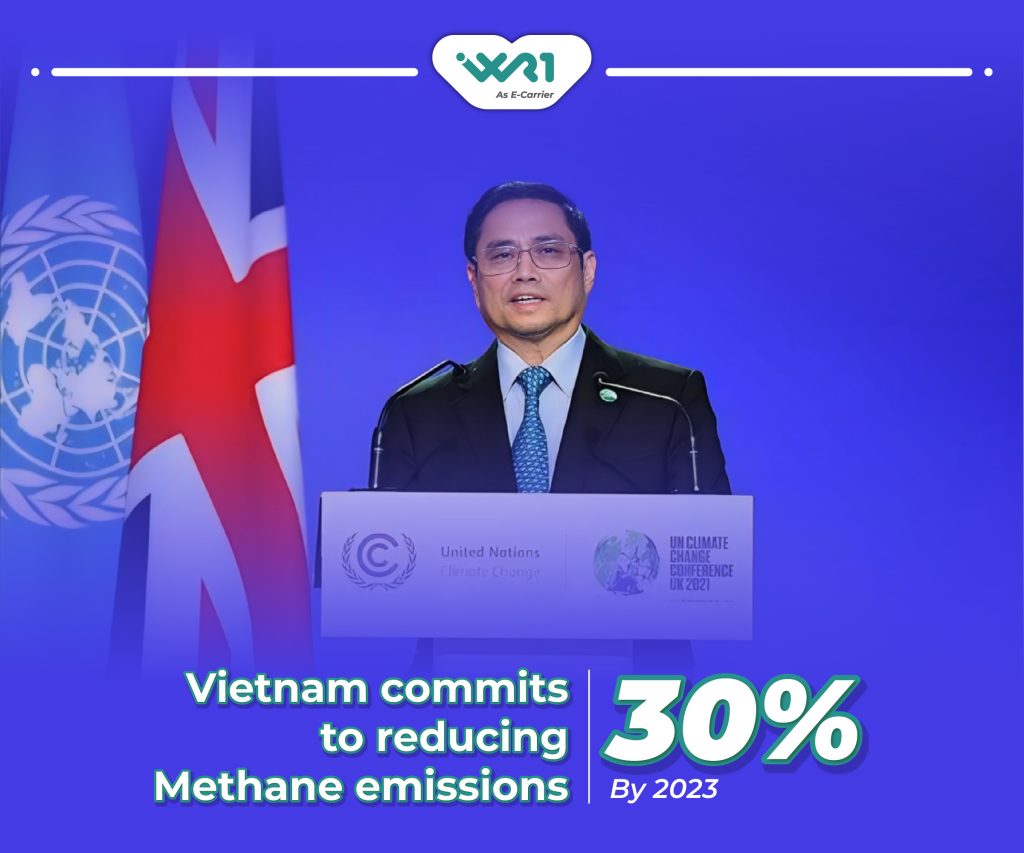
The impact of methane on global warming
In global climate change, Carbon dioxide (CO2) has always been considered the primary culprit for global warming. However, recently, humans have come to realize that besides CO2, there’s another gas with a more potent impact on the greenhouse effect, and that’s Methane (CH4).
CH4 is one of the six major greenhouse gases (GHGs) with significant impacts on global warming. Despite its shorter atmospheric lifetime of around 12 years compared to CO2, it has a higher energy absorption capacity and thus affects Earth’s warming process more intensely.
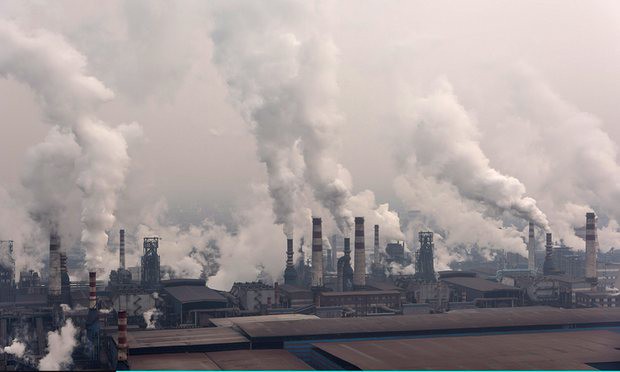
To compare the impact of any substance to 1 ton of CO2 on Earth’s warming process, the Intergovernmental Panel on Climate Change (IPCC) uses the Global Warming Potential (GWP) index. Over 20 years, the impact of 1 ton of CH4 ranges from 72-86 times that of 1 ton of CO2, 25-34 times over 100 years, and approximately 6.7 times over 500 years. Therefore, reducing CH4 emissions is a highly effective measure to mitigate the impact on Earth’s warming, alongside reducing CO2.
Every year, an average of about 570 million tons of CH4 is emitted into the atmosphere, with 40% coming from natural sources and 60% from human activities. According to the International Energy Agency (IEA), in 2020, global oil and gas activities emitted over 70 million tons of CH4, equivalent to the CO2 emissions from the entire energy sector in Europe. Major CH4 emissions sources include oil and gas extraction activities such as flaring, venting, leaks from pipelines and storage tanks, evaporation from oil storage, and fuel combustion for operation, as well as activities maintenance and repairs.
Vietnam’s actions at the COP26 conference
At the COP26 conference (2021), along with 137 other countries, Vietnam committed to the Net Zero goal, which includes reducing at least 30% of methane emissions by 2030 (known as the Global Methane Pledge – GMP). To fulfill this commitment, on August 5, 2022, the Prime Minister signed a Decision approving the Action Plan to reduce CH4 emissions by 2030. This plan aims to reduce at least 30% of total CH4 emissions by 2030 compared to 2020 levels in activities such as agriculture, livestock farming, waste management, wastewater treatment, oil and gas extraction, coal mining, and fossil fuel consumption.
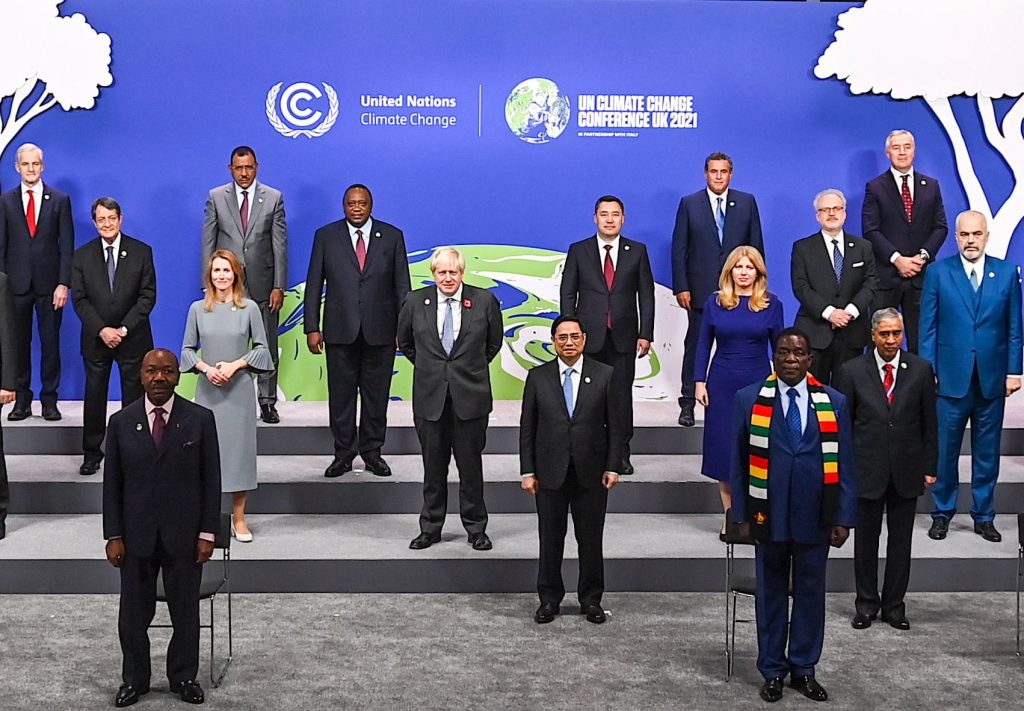
To enhance the effectiveness of methane emission reduction efforts, the Ministry of Natural Resources and Environment issued an Action Plan to reduce methane emissions by 2030 with 6 main tasks:
- Establishing and improving mechanisms and policies;
- Implementing methane emission reduction measures in waste management and wastewater treatment;
- Scientific research and technology development;
- Strengthening awareness-raising, education, and public awareness;
- Enhancing bilateral, multilateral cooperation and resource mobilization;
- Monitoring and evaluation.
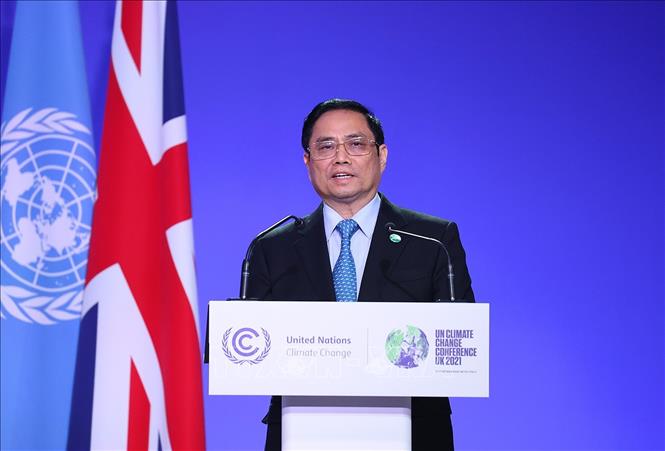
The target by 2025 is to ensure that total CH4 emissions do not exceed 96.4 million tons of CO2 equivalent, a 13.34% reduction from 2020 emissions levels. This includes CH4 emissions from agriculture not exceeding 42.2 million tons of CO2 equivalent, emissions from livestock farming not exceeding 16.8 million tons of CO2 equivalent, emissions from waste management and wastewater treatment not exceeding 21.9 million tons of CO2 equivalent, emissions from oil and gas extraction not exceeding 10.6 million tons of CO2 equivalent, emissions from coal mining not exceeding 3.5 million tons of CO2 equivalent, and emissions from fossil fuel consumption not exceeding 1.3 million tons of CO2 equivalent.
In the context of a vigorous energy transition, an inevitable trend worldwide to address climate change, Vietnam, especially unit WR1, is determined to deploy solutions to proactively embrace this trend and effectively fulfill commitments to reduce emissions, aiming towards sustainable green development.



 Tiếng Việt
Tiếng Việt
